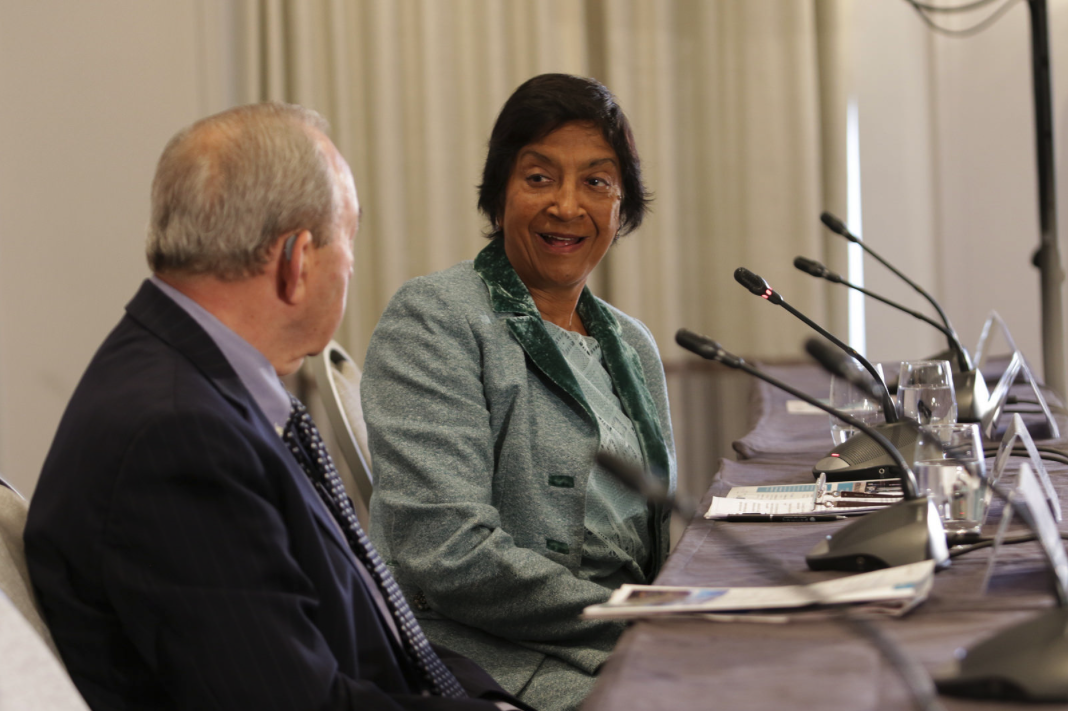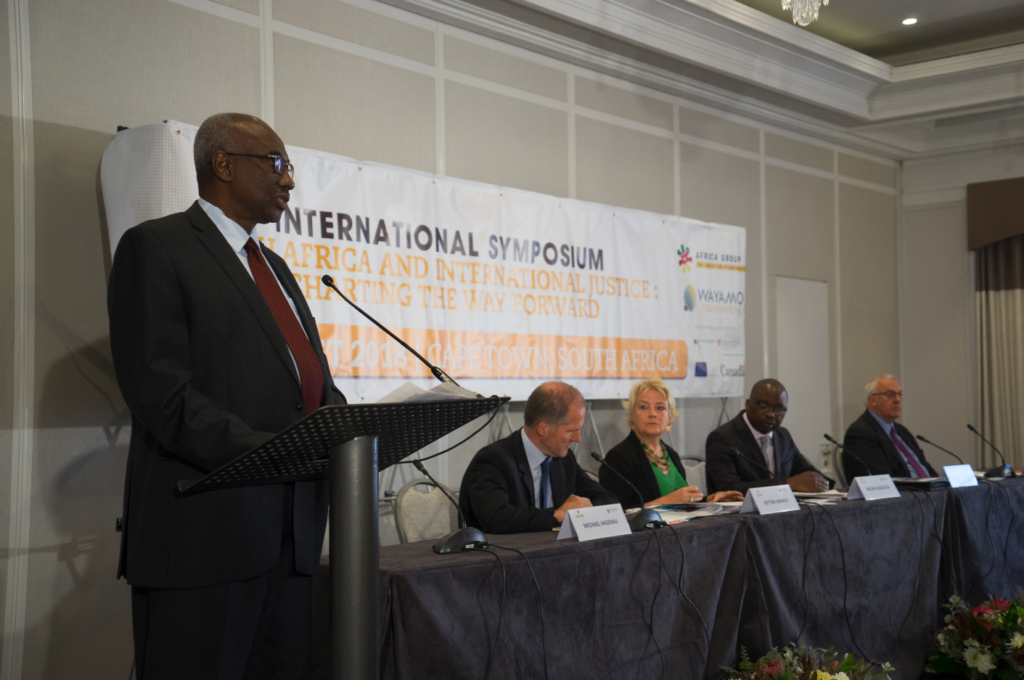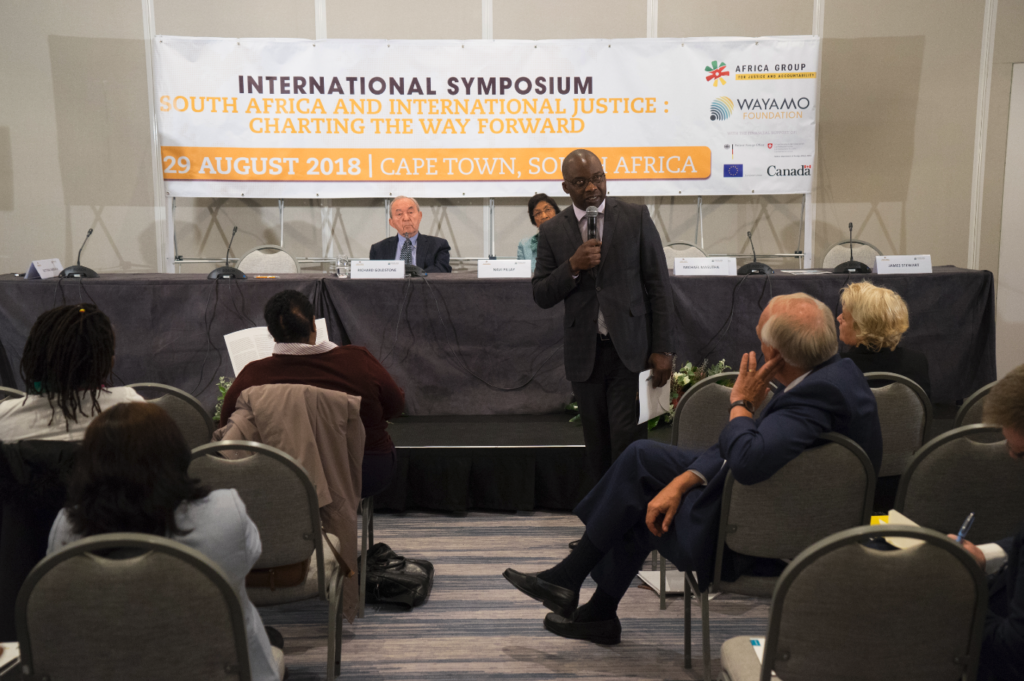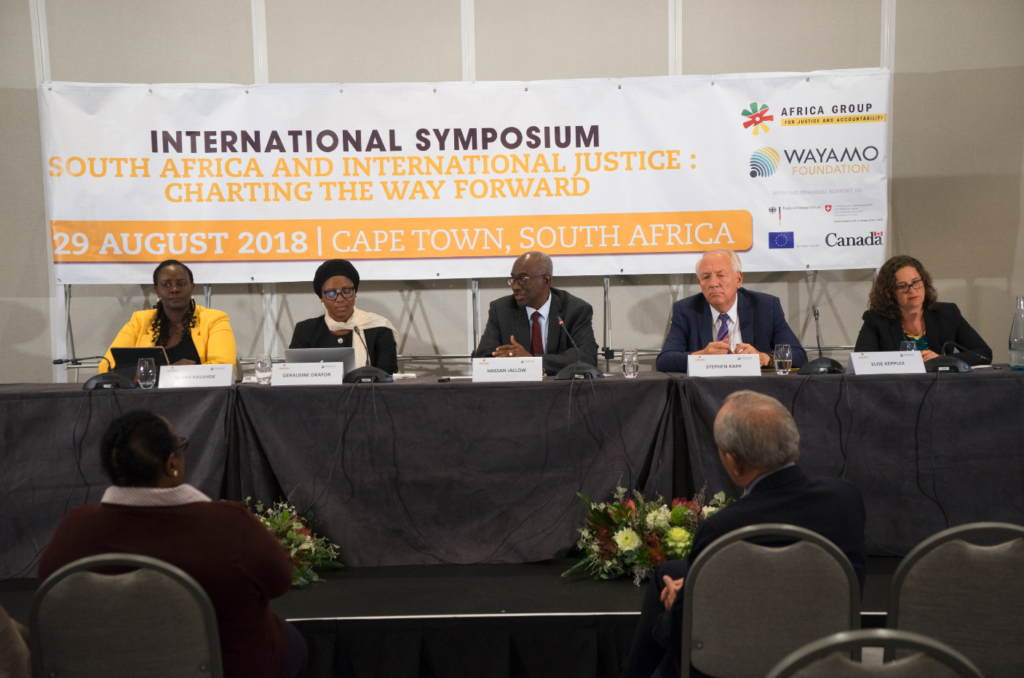29 August 2018, Cape Town, South Africa
At a crucial point in time, when South Africa’s longstanding commitment to the International Criminal Court (ICC) hangs in the balance, and many countries across Africa and other parts of the world are looking on with real interest at the direction it will take, the Africa Group for Justice and Accountability (AGJA) and the Wayamo Foundation held a one-day public symposium in Cape Town on the issue. The event was made possible thanks to the combined generosity of the Swiss Federal Department of Foreign Affairs, the German Federal Foreign Office, the European Union, and the Government of Canada.
Not only did the symposium prove highly successful in bringing together a varied and prestigious group of international and local experts on international criminal justice, non-governmental organisations, academics, practitioners and members of civil society, but it also managed to address topics of pressing concern and importance, ranging from “International Criminal Justice – The Road Ahead”, “South Africa and the ICC – Where Now” and “The UNSC-ICC Relationship and Head of State Immunity” to “Thinking Outside the ICC Box: Domestic and Hybrid Justice for core international crimes”.
Click here for the programme and here for pictures.
The day began with words of welcome from Bettina Ambach, Director of the Wayamo Foundation, Michael Hasenau, Head of International Criminal Law and International Criminal Court Unit at the German Federal Foreign Office, and Hassan Jallow, AGJA Chair and Chief Justice of the Gambia, and two thought-provoking keynote speeches from Michael Masutha, South African Minister of Justice and Correctional Services, and James Stewart, Deputy Prosecutor of the ICC.
Guest panellists included: Navi Pillay, AGJA member and former UN Commissioner for Human Rights; Richard Goldstone, AGJA member and former ICTY and ICTR Chief Prosecutor; Max du Plessis, Advocate of the South African High Court; Kaajal Ramjathan-Keogh, Director, Southern Africa Litigation Centre; Stephen Rapp, former United States Ambassador-at-Large for War Crimes Issues in the Office of Global Criminal Justice; Dire Tladi, Professor of Law, University of Pretoria and Member of the UN International Law Commission; Elise Keppler, Associate Director, International Justice Programme, Human Rights Watch; Lami Omale, Associate Legal Officer at Office of the Legal Counsel, African Union Commission; Netsanet Belay, Africa Programme Director, Amnesty International; Geraldine Okafor, Chief State Counsel, Complex Casework Group, Federal Ministry of Justice, Nigeria; and Sarah Kasande, Head of Office, Uganda Programme, International Centre for Transitional Justice.
The sheer spectrum of opinions represented, including that of the country’s government, ensured that widely differing points of view were expressed, challenged, and debated in an environment of respectful dialogue, mutual respect and a genuine search for a way forward.
Having two keynote speakers coming from such diametrically opposed directions meant that Minister Masutha was called upon to elaborate on his views and to define the government’s reasoning and rationale in greater detail. Indeed, the entire day was notable for the way in which both the Minister and the remaining speakers were probed and tested by keen questioning from the floor, underscoring the degree of engagement shown by a closely attentive, well-informed audience.
Similarly, having organisations such as the Southern Africa Litigation Centre, International Centre for Transitional Justice, Human Rights Watch and Amnesty International in the room allowed for a series of critical views to be voiced, whether of the UN Security Council, the ICC, domestic accountability efforts in Uganda, Nigeria and South Africa itself. On the academic-legal side, Dire Tladi and Max du Plessis coincided on some points and agreed to disagree on others, while Navi Pillay, Richard Goldstone and Stephen Rapp drew on their vast stores of experience to argue the cause of international criminal justice in its various shapes and forms. Other topic areas touched upon included the African Union’s position on what it deems to be competing obligations placed on its Members by the Rome Statute and customary international law in the sensitive and controversial area of Head of State immunity.
Aside from providing a much-needed space for dialogue, the day was seen as having afforded actors on both sides of the debate an invaluable chance to meet, air grievances, listen and discuss the situation from many different angles…historical, political, legal, practical and, as Richard Goldstone pointed out, moral.
The symposium was unanimously voted a success by participants, audience, and funders alike.
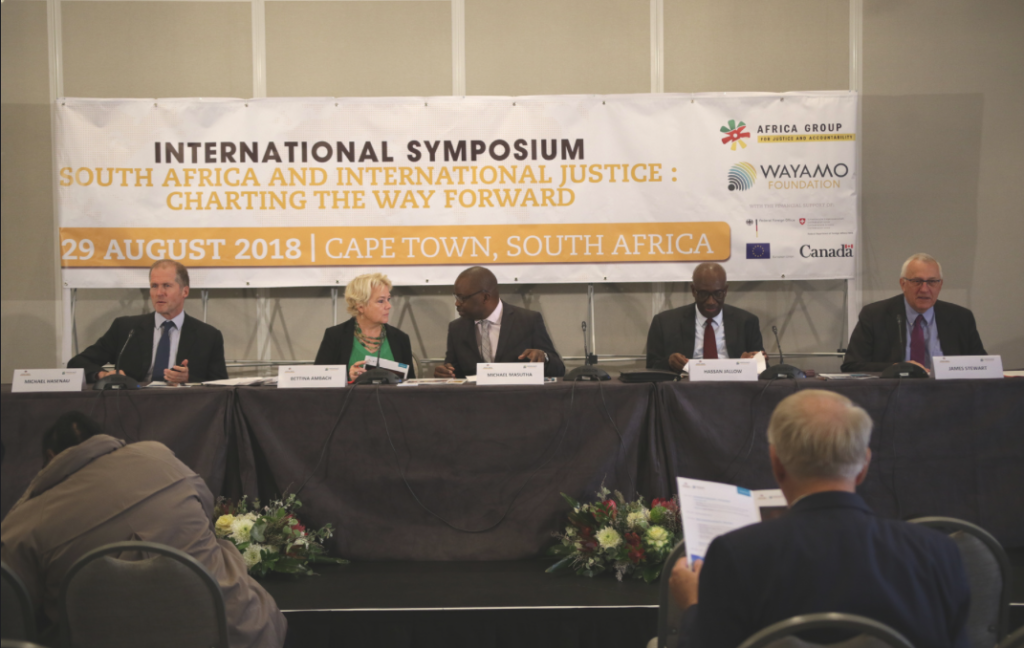
Welcoming remarks: Michael Hasenau, Head, International Criminal Law and International Criminal Court, Federal Foreign Office, Germany, Bettina Ambach, Director, Wayamo Foundation, Michael Masutha, Minister of Justice and Correctional Services, South Africa, Hassan Bubacar Jallow, Chief Justice of The Gambia and Chair of the Africa Group for Justice and Accountability (AGJA) and James Stewart, Deputy Prosecutor of the International Criminal Court

